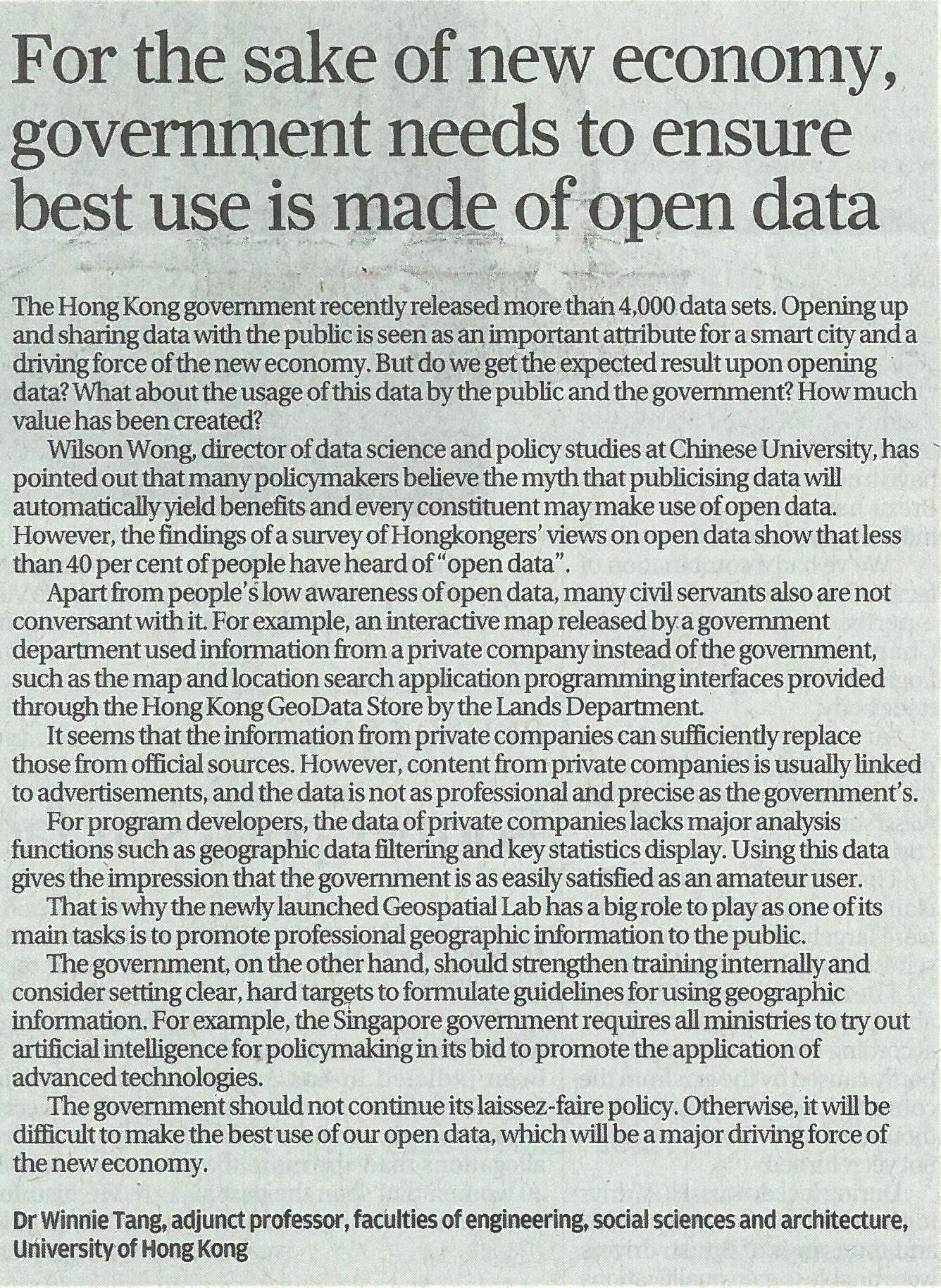網上版請按此

For the sake of new economy, government needs to ensure best use is made of open data
The Hong Kong government recently released more than 4,000 data sets. Opening up and sharing data with the public is seen as an important attribute for a smart city and a driving force of the new economy. But do we get the expected result upon opening data? What about the usage of this data by the public and the government? How much value has been created?
Wilson Wong, director of data science and policy studies at Chinese University, has pointed out that many policymakers believe the myth that publicising data will automatically yield benefits and every constituent may make use of open data. However, the findings of a survey of Hongkongers' views on open data show that less than 40 per cent of people have heard of "open data".
Apart from people's low awareness of open data, many civil servants also are not conversant with it. For example, an interactive map released by a government department used information from a private company instead of the government, such as the map and location search application programming interfaces provided through the Hong Kong GeoData Store by the Lands Department.
It seems that the information from private companies can sufficiently replace those from official sources. However, content from private companies is usually linked to advertisements, and the data is not as professional and precise as the government's.
For program developers, the data of private companies lacks major analysis functions such as geographic data filtering and key statistics display. Using this data gives the impression that the government is as easily satisfied as an amateur user.
That is why the newly launched Geospatial Lab has a big role to play as one of its main tasks is to promote professional geographic information to the public.
The government, on the other hand, should strengthen training internally and consider setting clear, hard targets to formulate guidelines for using geographic information. For example, the Singapore government requires all ministries to try out artificial intelligence for policymaking in its bid to promote the application of advanced technologies.
The government should not continue its laissez-faire policy. Otherwise, it will be difficult to make the best use of our open data, which will be a major driving force of the new economy.
Dr. Winnie Tang
Adjunct Professor, Department of Computer Science, Faculty of Engineering; Department of Geography, Faculty of Social Sciences; and Faculty of Architecture, The University of Hong Kong